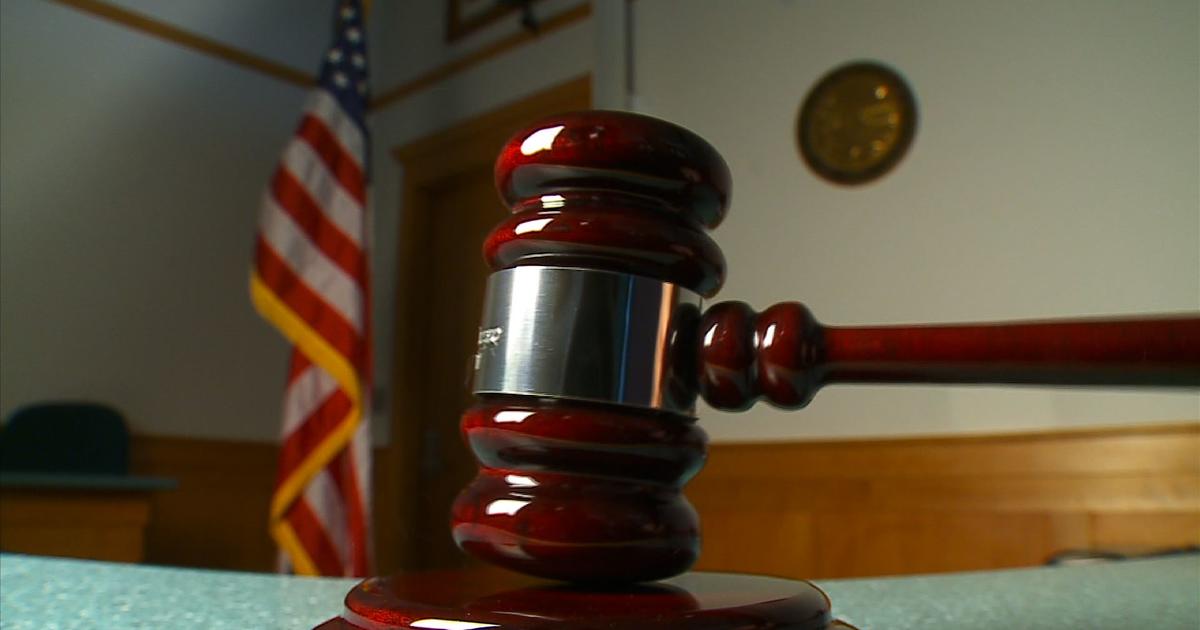For Vikings Lineman, Hurricane Katrina Remains A Vivid Memory
MINNEAPOLIS (WCCO) -- As Hurricane Katrina headed toward land, Isame Faciane's family hurried to leave.
Their home in Slidell, La., just outside of New Orleans, where 14-year-old Faciane lived with his grandparents, was directly in the path of the storm.
"My grandmother, she didn't want to leave," Faciane recalled. "And my grandfather, he was like, 'Delores, we gotta get outta here.'"
As Saturday approaches, marking the 10-year anniversary of Hurricane Katrina's landfall in and around New Orleans, Faciane's memories of what happened that day are still vivid, and continue to impact him a decade later.
The storm was one of the worst natural disasters in American history, causing more than $100 billion in damage and killing 1,833 people.
And Faciane, who spent last season on the Vikings practice squad as a defensive lineman and switched to offensive line this year, was quite literally in the middle of it all.
As they hurried out of the house, he could only grab two outfits and a pair of shoes. They headed toward the highway, but soon realized it was so gridlocked they wouldn't be able to leave.
"Traffic was backed up through Mississippi," he recalled in a conversation with WCCO after a recent practice. "So we didn't go. We didn't want to get stuck in traffic."
Instead, they headed for higher ground – at the Deluxe Motel where his uncle worked on the other side of town.
"That night, the storm hit," Faciane said. "I want to say about 3:00, 2:00 a.m. The storm hit, and you hear all the wind and the rain just rolling through. And it continued through the morning."
As Katrina made landfall around 10 a.m., Faciane and his sister and cousin stood on the balcony of their hotel room, watching the wind and the rain pound against the hotel across the street.
"And the wind blew it down," Faciane said. "So we're like, 'Oh. We're in this hotel right here, like, that could happen to us.' So we're freaking out, you know."
The eye of the hurricane passed directly over Slidell. But their hotel was spared.
The southern half of the city, though, was under water.
"It hit that area pretty hard," Faciane said.
As the water began to recede the next day, Faciane and his family started back toward home. They had to walk the three and a half miles because all the roads were closed, littered with downed trees, power lines and dead eels. Fish swam past them as they walked.
"And we get to the house, and we go in there. Everything's just turned upside down. Everything's all falling over each other," Faciane said. "You walk through the house like, we lost everything."
The floodwater was gone by the time they arrived, but had left behind clear evidence of where it'd been – a visible line on the walls nearly seven feet high. Only the pictures on the highest part of the wall could be saved. The house, which had been in his family for generations and his grandmother herself had grown up in, was a total loss.
"It wasn't everything," Faciane said of the humble one story, three bedroom house. "It wasn't what a lot of my friends had and everything. But I appreciated everything that she did for me."
The frustration that many expressed toward FEMA in the aftermath was personal for Faciane's family. It took three months to bring them a FEMA trailer. They lived in the flooded house while they waited.
"I want to say FEMA didn't bring a trailer until the end of November, like around December," Faciane recalled. "Because I remember it was cold. It was like real cold in the house. We had little space heaters around to keep us warm and stuff… We had power. We had power by that time. But we didn't have any clean, running water."
And then things got even worse. His grandfather, Ellis, got sick and doctors found a lemon-sized tumor on his brain. Terminal cancer.
"Lot of stuff going, you know," Faciane said. "I'm in, what, 8th grade at the time? So a lot of this stuff going on. (I was) like, man, I gotta man up myself, you know?"
His family lived in the FEMA trailer for nearly two years until his grandparents could finally get a new place. Then his grandfather passed away.
"As I took responsibility of helping out more around the house," Faciane said, "school was like, my escape from everything. I wasn't even really just concentrating on school, it was just like… I'm out the house. I can be a kid again, you know what I'm saying?"
Ten years later, Faciane is now very much grown up. It's not the kind of milestone you celebrate. But Katrina, he says, very much shaped who he turned out to be.
"It definitely made me stronger, tougher, you know?" he said. "It made me mature earlier. And just appreciate little things more.
"I would've never, ever thought something like that would happen, you know? To lose everything that you had. But looking back on it, it's like, how far I've come."
It's something he wanted to remind himself of every day – wearing his heart on, well, where his sleeve would be.
"This is the hurricane right here on my elbow," he said, giving a tour of the tattoo that covers his entire left forearm. "And right here, this is my grandmother's house that we grew up in."
There's a car underwater, a truck in a tree, trees and power lines falling. And a man, sinking in the water.
"Yeah a guy in the water, yeah, right here," he pointed. "Because people really were trapped in there, you know."
The man in the water could've been him.
A thought that motivates him to make something of the life he's been given.
"The storm, and everything that came with it, definitely built my character," Faciane said. "It made me a stronger person."



